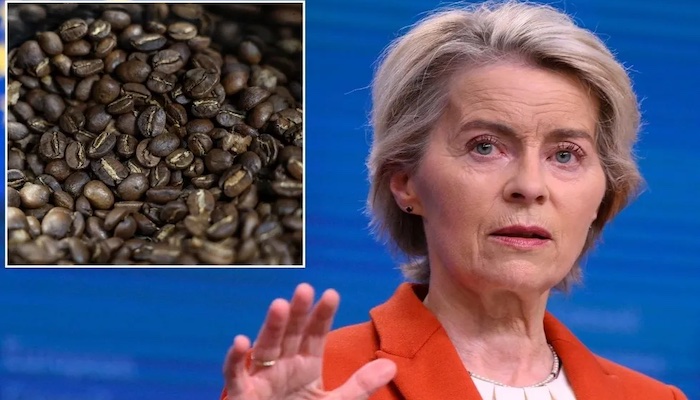
Coffee is labeled “harmful” by the EU, and it is prohibited as a pesticide due to public outcry
Caffeine has been banned as a pesticide by the EU after ruling that coffee is detrimental to humans, raising concerns about potential future coffee regulations.
A restriction on caffeine as a pesticide was imposed by the European Union, which determined coffee to be dangerous to people. This sparked fears that coffee itself would soon be targeted by Brussels authorities.
The decision, which is detailed in a new EU rule, is based on scientific data that coffee’s main ingredient, caffeine, may have negative impacts on body temperature, heart health, hydration, and mental health.
Although the ruling’s main goal is to stop caffeine from being used in agriculture to control snails and slugs, it has raised concerns that coffee may soon be subject to more extensive regulations.
The move was denounced as “more unwelcome and needless interference from meddling bureaucrats in Brussels” by Patriots for Europe chief whip Anders Vistisen, a Danish MEP. He cautioned against the eventual compelled consumption of decaffeinated coffee as a result of the EU’s legislative overreach.
“What does all of this lead to? Will they really finally have us drink coffee that has been decaffeinated? It’s getting out of hand,” he said.
The caffeine prohibition was compared to previous attempts by the EU to control traditional foods, such as an attempt to limit coumarin, a component found in cinnamon, which almost resulted in the Danish cinnamon roll being banned, according to Vistisen. Reclassifying the pastry as a “traditional” meal was the only thing that saved it.
“A few years ago, the European Union wanted to ban cinnamon on Danish pastries, and the baker’s union had to work out a get-out clause,” he said. It would be far more convenient for everyone if many of these issues were left up to individual discretion and national competence.
Following earlier EU prohibitions on food additives like titanium dioxide, which compelled bakers and food producers to rework their goods or take them off the market entirely, comes the caffeine verdict. Opponents contend that these policies compromise national culinary traditions and consumer flexibility in favor of bureaucratic homogenization.
All Categories
Recent Posts
Tags
+13162306000
zoneyetu@yahoo.com


